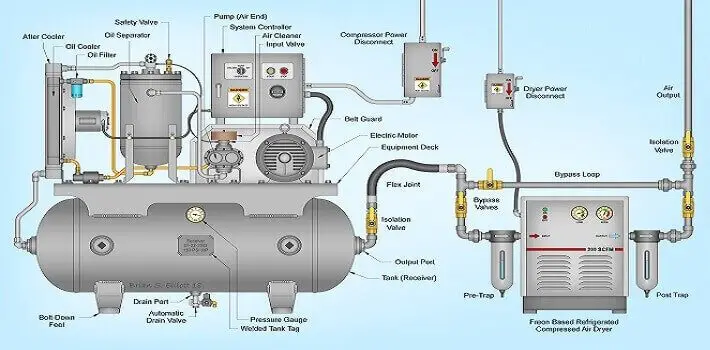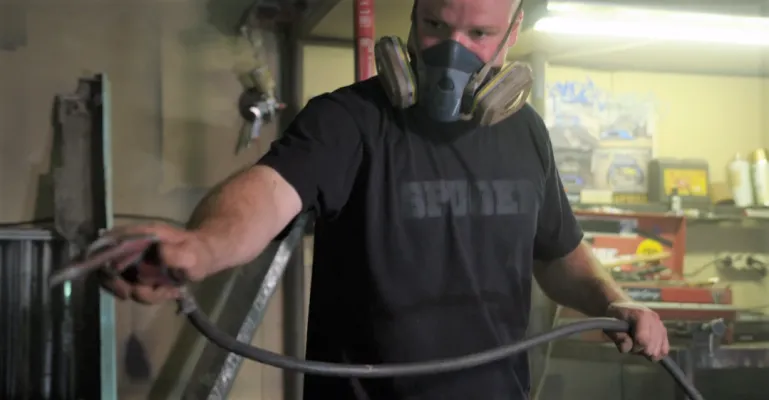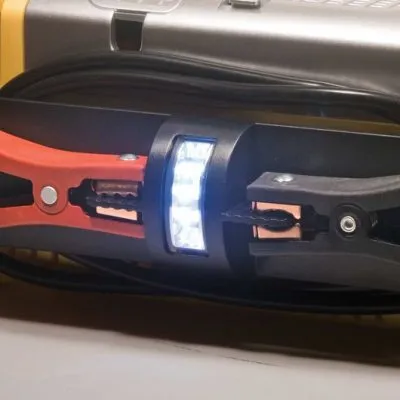We will agree on one point that air compressor is an integral part of modern era’s households. Because of the variety of applications of this machine, anybody would love to own an air compressor for a home garage or commercial purposes.
Nevertheless, people often complain about the fact that this tool can be too noisy sometimes.
There are scenarios where you need your air compressor to be quieter. For example, if you are using air compressor combo kits to do some repair work, and there are people in the household who need to sleep, then you need to learn how to make the air compressor produce less noise.

Regardless of the work a typical compressor does, it is bound to make such noise. However, why would you want to bear such cacophony when it can be turned into a quieter one?
Here, in this guide, we will reveal some hacks to make a quieter air compressor. So, without further ado, let’s dive in.
Why Does an Air Compressor Make Noise?
Unfortunately, we cannot conclude this topic with a singular factor. There are few factors involved to make an air compressor more clangorous than anything you come across.
If you know how they are collectively turning a naive air compressor into an ear-splitting monster, we hope it will be a bit easier to handle the racket with several hacks.
- Where is the compressor kept?
Yes, the level of sound depends on this factor immensely. If the machine is placed on a concrete surface during the runtime, it is evident to experience a louder sound.
Make sure the ground is even as well. Otherwise, because of the bumpy surface, the tool will keep producing noise.
- Air Compressor Type
An air compressor comes with noise as a byproduct.
You can find several types of air compressors in the market. Air compressors with more power tend to be louder than their less powerful counterparts.
Also, some air compressor brands are noisier than others. In our McGRAW air compressor reviews, we discussed how the McGRAW air compressors are durable and efficient, but are slightly noisier than other similar air compressors.
- Vibrating Motion Level
Sound is a vibration that propagates through a medium. So, the level of vibration will determine how much sound is going to be produced.
Here, assembling the tool in the right manner will surely redeem the sound that comes out from it. You have to attach every part of the machine precisely.
How to Make an Air Compressor Quiet?
Despite being vociferous, there is no denial about the efficacy of an air compressor. However, an expensive one can be quieter than the others.
If you didn’t purchase those and cannot stand the clattering the machine is making, then you are in the right place.
Air Intake Valve of the Air Compressor
The air intake is an essential part, yet it makes most of the sound. Through this section of the machine, air enters; thus, it has no option but to make unwanted din due to immense pressure.
Now, if we tell, by moving the air intake outside, you can turn that machine a little quieter, will that excite you?
The good news is, you don’t need to move the entire air compressor outside to make this happen. Extend the air intake unit with a rubber hose to the facade.
Take a rubber hose that fits perfectly onto the intake. Using a bracket, tape, or rubber grommet to hold it fixed should be a smart idea.
When the air is being guzzled through the intake unit, it can make some serious noise because of the indoor setup. The sound will keep echoing across the hall by hitting the wall recurrently.
Right after moving the air intake valve outside, you will feel less discomfort, more sanity.
Grease the Bearings of Your Compressor
Most of the machines have movable sections, and those contain bearings. When we are talking about an air compressor, it is no different.
You probably know a general fact that friction produces sound. The more those bearings will rotate the more sound they are going to generate.
Hence, the movement of the metal bearings should be effortless to make the whole process hushed.
Greasing the bearings can be an excellent choice for this as it will minimize the friction. Eventually, the smoother movement of the metal bearings can be noiseless.
Use proper lubricating oil for the bearings. Keep them running for a while so that the oil can reach every portion of the bearings.
After a break, you can restart the machine.
Use a Sound Proof Box
Just think straight for a sec.
As the excessive noise coming out from the air compressor; what if we put the compressor in a soundproof case? Therefore, the noise won’t come out in enough measure to annoy you.
Simple DIY (Do It Yourself) project can give you such freedom to use a compressor like never before. The things you need include:
- Measurement tape
- Plywood
- Saw
- Screws
- And a driller.
The first step is to measure the compressor and cut the plywood with the saw accordingly. Remember, you have to make a case that a bit bigger than the machine.
Take some space to make holes by a driller for the air intake valve (if you already have extended it) to allow air to get inside and heat to getaway.
Assemble the plywood sheet with screws. Optimistically the hack should satisfy your expectation. If you feel it’s a hectic job, then call the professionals to build it for you.
Auxiliary Tips to Make the Compressor Quieter
- Always try to keep the air filter clean. The filter keeps managing the air through the intake without allowing any contaminant particles inside. Once the air filter gets clogged, it makes the job more stringent for the compressor. Consequently, the machine continues to produce more sound than usual. So, it is recommended to clean the air filter once every 8-12 months.
- Try to put the machine in an open space so that the air can get through quickly. When the room or garage is too confined for ventilation, then it is a problem because the pressure of sucking more air will make more sound.
- Using a silencer would be a no-frills yet way more efficacious hack for mitigating the sound. Install a silencer and BOOM. You will experience at least 2-5 decibel lesser noise.
- A pair of earplugs can help you. Well, that’s not a permanent solution overall yet useful.
- Give a proper check to the air compressor frequently. You must be aware of the pressure that the machine is capable of making. So, the invariant friction continuously produces heat and motion, making it even more vulnerable without proper maintenance.
Bottom Line
Despite being so much effective for household use, an air compressor can be annoying. Sometimes it can be dangerous also. So, never try to experiment with it nor overlook the safety precautions.
By and by, if you are still struggling to redeem the noise, upgrade the air compressor to an expensive one. Or give us a buzz, any day.
You may also read: how to adjust an air compressor pressure regulator.






